In the first of a series examining sustainable retailing, Gaelle Walker gets a glimpse of things to come at Tates & Wayne’s eco store
Forget the teleporter and ditch the Spock ears. If you want a vision of a futuristic convenience store, just step through Spar Kidderminster’s doors.
In its past life the store functioned as a public house, however its new guise couldn’t be more different. The dark brick facade and the rowdy rabble have been replaced (much to the pleasure of local residents) by a bright and welcoming Spar fascia.
Spar Kidderminster opened six months ago and is the first ‘eco’ store to grace the Tates & Waynes estate, representing the look and feel of things to come following the merger of the two groups last year.
Energy efficiency and sustainability are woven into the store’s DNA, a fact which is reinforced for shoppers at every turn thanks to a raft of pos and signage. Posters, shelf-edge labels, aisle ends and chiller door handles explain the hows and whys of each of the store’s sustainable attributes.
No mystifying talk of kilowatts and calorific values here, though. Instead, shoppers are told that each year the store should save as much electricity as 17 family homes would use each year, and enough CO2 to fill eight hot-air balloons.
Store profile
Size: 2,500sq ft
Staff: 19
Opening hours: Monday-Sunday 7am to 11pm
Additional services: National Lottery, PayPoint, Payzone, free ATM, hearing loops on checkout, 30-space car park
In monetary terms the store’s annual energy bill is expected to be almost £10,000 a year cheaper than a standard store of the same size.
So how is this achieved? The gleaming wall of transparent doors across the store’s comprehensive chilled produce range provides the first clue. “The doors help us to reduce our energy usage by up to 40%,” explains enthused manager, Neil Norton. “The theory that they are a barrier to sales is nonsense - if anything they help to boost sales by keeping products in the best possible condition and creating a more pleasant in-store temperature. They’re really light and easy to open. However, they also deter shoplifting, so in my opinion they tick all the boxes.”
Efficient fans which use 75% less electricity than standard ones have been fitted inside the chiller cases, while outside the chiller motors use noise-reduction materials so as not to disturb local residents. “We’ve really taken our local residents to heart with the building and running of this store,” explains Neil. “Some of them had to put up with quite a lot when this was a pub, so they were thrilled when they heard it was going to be transformed into a convenience store. We want to make sure they continue feeling that way.”
To this end, exterior lighting in the rear delivery yard is dipped and on a timer so as to minimise light pollution, and great care is taken when unloading deliveries, particularly on early mornings.
It is this attention to detail which plays such a part in the store’s design. Inside the chiller cases, for example, energy-efficient LED lights give off less heat and so less electricity is needed for cooling.
Ceiling lights are also a mix of high-efficiency LED and relatively new Ceramic Discharge Metal-halide (CDM) lamps, creating a lighting systems that’s 40% more efficient than a normal one.
All back room areas have lighting on sensors, which saves more money, while the Turboserve food-to-go counter also features doors. “The doors heighten shoppers’ perception of freshness and cleanliness,” explains Neil.
Carrier bag usage is another focus for the store, and thanks to a 2p charge it’s also well on its way to making more environmental and cost savings. “All proceeds are donated to the NSPCC, and people seem very happy with this arrangement,” explains Neil.
He plans to turn more of his attention to charity and the support of local good causes once the store’s ‘bedding in’ period has passed, and has a host of plans up his sleeve. Encouraging his staff to get involved with Blakemore’s employee volunteering scheme, which sees employees donate a few hours of their time towards helping out local community groups, will play a key role. “It’s a fantastic way of making a positive difference to the local community,” Neil says.
Other plans include growing the store’s average basket spend from its current £4.50, and encouraging more trolley shopping. “Boosting our fresh produce participation from 26% to 40% will form a large part of this plan. We’ll try to get more local suppliers on board, and recipe suggestions, in-store tastings and promotions will help,” he adds.
The store already has a strong promotional stance, which like its sustainable credentials is reinforced at every turn with Tesco Price Match signs, Real Deals boards, Meal Deal shelf-talkers and round pound product stickers, all hard to ignore. Standalone confectionery units also prompt impulse purchases and catch shoppers’ attention while queuing.
“We’ve already had very positive feedback from the 5,300 customers who shop here each week, so we know we’re heading down the right track at pace,” Neil adds. “It’s such an exciting time to be working in the convenience industry, and to be doing it out of this fantastic new store is just a dream.”■





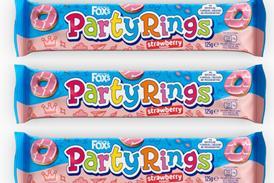
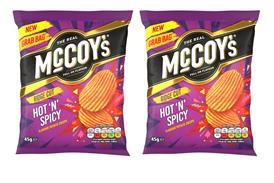


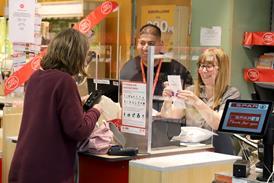

![WG-4003[58]](https://d2dyh47stel7w4.cloudfront.net/Pictures/274x183/4/5/1/353451_wg400358_6083.jpg)





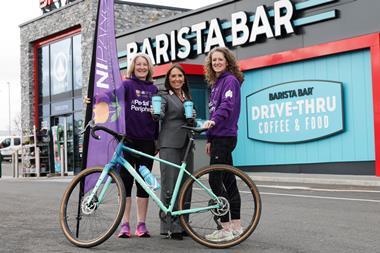

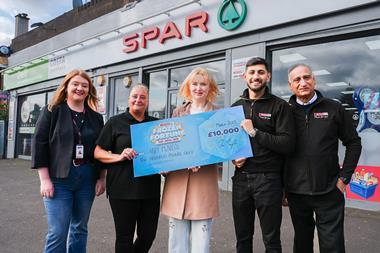
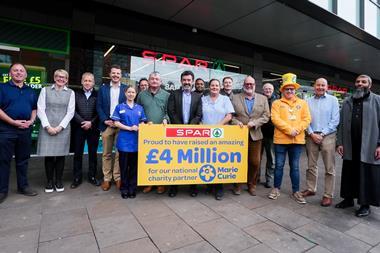
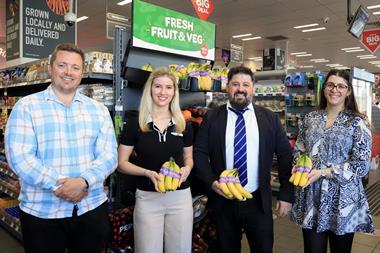



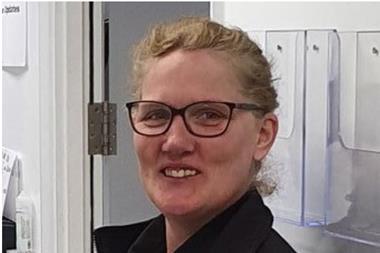
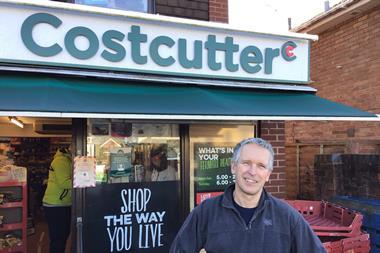
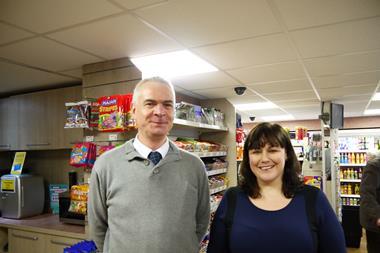
No comments yet